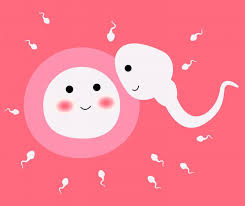Ovulation plays a very important role in pregnancy. Ovulation is a period where the egg is released into the ovary. This egg is ready to be fertilized. During this period, the egg must be fertilized by the sperm for the pregnancy to occur.
When the egg is released, the sperms must be available in the fallopian tubes to fertilize that egg. In simple words, sexual intercourse must happen before the ovulation period to increase your chances of getting pregnant.

Regular cycles play an important role in detecting the ovulation period. The average number of days between the two cycles is 28 days approximately. A woman with a normal cycle rate tends to ovulate between the 11th to 21st day of her cycle. This means that the days between the 8th to 21st day is the most fertile window period.
If you have a longer cycle span, the ovulation may occur close to the 21st day. If you have a shorter cycle span, the ovulation will most probably occur close to the 11th day. For this reason, you must keep track of your period dates in order to predict your ovulation period. It is practical to have sexual intercourse during these days for higher chances of getting pregnant.
You can easily track your ovulation period by these simple steps:

The signs of ovulation are easy to determine. Some of the common signs by which your fertile window can be determined are as follows:
Like everything else, it is not 100% foolproof. The basic thing is that “It doesn’t matter”. As long as you have had sex in the predicted fertile window, your chances of getting pregnant are high.
This can be a major sign that you have ovulation problems. There are many reasons why you could not be ovulating. They can happen due to:

Visit Tamara Hospital and IVF center today to meet our experts and allow them to help you to make your dream of having your own baby come true.
MS (OBG), Diploma in Reproductive Medicine (Germany), Diploma in Ultrasonography, Consultant Obstetrics & Gynecology Infertility
Dr. Aishwarya has an experience of over 7 years. She is very passionate about artificial reproductive techniques and she constantly updates herself with the latest techniques.
10/08/2023
10/08/2023
10/08/2023
10/08/2023
24/07/2023
04/07/2023
04/07/2023
17/06/2023
18/05/2023
24/04/2023
16/03/2023
21/02/2023
21/05/2022
17/03/2021
05/03/2021
02/03/2021
17/02/2021
22/01/2021
18/01/2021
12/01/2021
04/01/2021
31/12/2020
28/10/2020
06/08/2020
03/07/2020
20/06/2020
12/05/2020
14/03/2020
29/02/2020
06/02/2020